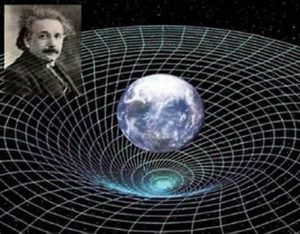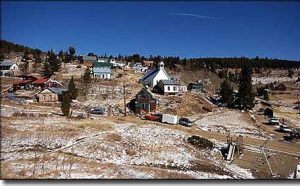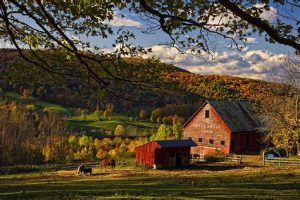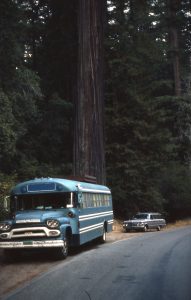
We’ve all stood at a few crossroads. We all face turning points. Most of the time, we’re aware of them. Turning points can slip up from behind and smack us on the back of the head. If you’re aware, the turning point might, in the best of all worlds, be a change you’ve planned. Or perhaps you didn’t plan it but faced its arrival with excitement…or dread.
All I can safely say is… no one was killed.
Anticipating an argument with a spouse might signal the approach of a turning point. Dressing for a party or watching the sun rise after a night on a cold mountain might bring excitement or relief. Death will certainly arrive as a turning point.
Regardless of how they hit you, turning points are important to people, flora, fauna, and all manner of events and points along the time/space continuum. People write about, sing about, complain about, repress, or fuss over turning points.
Mostly, humans, with their overly busy minds, try to anticipate turning points. The choices involved can be intriguing, obsessive, even a matter of survival. Certainly, turning points can pose a dilemma of anticipatory dread. We can be aware or ignorant of a turning point’s approach, ecstatically or dismally journey through a looming turning point, but… what then?
 As any cosmologist who might be hanging around the house can tell you — with a tip of the hat to Albert Einstein and the Hubble telescope — we can look backward in time, experience time as it unfolds, but we can’t overtake the passage of time in some cosmic carpool lane.
As any cosmologist who might be hanging around the house can tell you — with a tip of the hat to Albert Einstein and the Hubble telescope — we can look backward in time, experience time as it unfolds, but we can’t overtake the passage of time in some cosmic carpool lane.
If you accept Einstein’s reality, we can’t predict what our turning points will bring. So, I thought I’d try to explore the aftermath of one of my many crossroads. Although I anticipated the approach of this turning point, I had no idea what the result of my decision would be.
After two winters living at 9000+ feet in the Colorado Rockies, I sat alone behind the wheel of a ’56 Chevy panel truck with a decked-out redwood camper on the back. The intersection, my turning point, lay just outside of Cheyanne, Wyoming, at the intersection of Interstate 80 and a three-lane prairie highway that would soon become interstate 75.
The time spent in the Colorado mountains had been exciting, unique, productive, and difficult, particularly for the two kids I had inherited with my long-term girlfriend. We had left San Francisco to live in a derelict mining town that hosted a mixture of crusty Colorado libertarians and a loose collective of hippies, anarchists, draft resisters, ex-drug dealers, reformed academics, and dogs.
 With wood and coal stoves for heat, no electricity or running water, we had lived an intriguing but rough life. After the second winter, my girlfriend bundled up the two kids, and took off down the mountain to rejoin her sister in New England.
With wood and coal stoves for heat, no electricity or running water, we had lived an intriguing but rough life. After the second winter, my girlfriend bundled up the two kids, and took off down the mountain to rejoin her sister in New England.
Two months later I realized I had grown tired of mountain living. I missed my life as an actor and musician, and I missed the kids and my girlfriend (in that order). I finished my last carpentry project and began to pack my spartan kit into the pickup truck. I bid goodbye to Hazel, the hearty octogenarian who had been my landlady and boss, celebrated a drunken farewell with my mountain mates, and took off down the mountain.
I had made my decision to leave, but where was I headed? I drove through Boulder, feeling as if I had never lived 17 miles and 4000 additional feet above the town for two years. I turned north on the highway to Cheyanne, mind whirling.
After two years in a hardscrabble canyon cabin, my partner and I had grown tired and frazzled by the difficult life and took it out on each other. The kids had stood enough high-altitude abuse. They needed a real home and a steady life. I had grown tired of the concern and responsibility for their welfare, but I missed them. They were great kids, although not mine, and I loved them dearly.
As I drove north into the beautiful high plains around Cheyanne, I tossed around my dreams of returning to San Francisco without the burden of a family and a monogamous partner. After years of playing as a folk musician, I wanted to study music seriously and plunge into the burgeoning folk rock scene. What better place to return to than San Francisco?
But then, what about my girlfriend and her kids? After my partner and I had bid each other stoic, bitter goodbyes, and I shared tear-filled farewells with the kids, the trio that had become my family took off down the canyon in my girlfriend’s newly acquired, ’64 Dodge van. She was bound for a farm in Vermont, stewarded by my partner’s more stable younger sister.
goodbyes, and I shared tear-filled farewells with the kids, the trio that had become my family took off down the canyon in my girlfriend’s newly acquired, ’64 Dodge van. She was bound for a farm in Vermont, stewarded by my partner’s more stable younger sister.
After spinning the myriad factors that burnt in my skull like the embers of a bonfire, I approached Cheyanne with no idea which direction I would take. As I headed north, left would take me to San Francisco and an anticipated life full of wine, women, and song; right would take me to Vermont, my surrogate family, and a communal farm with a woodworking shop. Which would it be? Country mouse or city mouse? New beginnings alone in a rapidly changing Bay Area, or familiar faces and a bucolic dwelling with the offer of a cabinet maker’s apprenticeship?
Rock and roll music? Freewheelin’ San Francisco women? A stormy but knowable self-styled family with a woman I had grown to love and live with, learn and laugh with, and hate? And oh, those kids?
I approached the intersection. All thoughts left my burning, buzzing beehive of rationality. Empty of ideas, I turned right, and began the long journey to Vermont, unresolved, without rationality, dread, or anticipation. A numb but familiar rhythm overtook me on the road, and three days later, I had reunited with my homemade family at the beautiful Vermont farm.
 Two years later, that same family left the New England communal farm (which had grown stuffy and proprietary — it seemed that all the participating radicals had decided to become like their parents, as quickly and completely as possible).
Two years later, that same family left the New England communal farm (which had grown stuffy and proprietary — it seemed that all the participating radicals had decided to become like their parents, as quickly and completely as possible).
We lucky few, outlanders to the end, stuffed ourselves, along with a couple of rebellious communards, into a refurbished school bus and drove west, back to San Francisco, the theater, a new calling for me as a studious jazz bassist, and a home we purchased and quickly filled with a motley but energetic cadre of actors, musicians, and kids.
Yes, we spun through several turning points during this restless period, but, in the end, we covered all the bases, from Rocky Mountain highs to Vermont pastorals, to music and theater, to a steady education for the kids, and several of many lives lived and more to be lived. Our turning points were marked with dread and excitement, conflict and beauty, blunders and good choices. As with my mindless turn of the wheel at the Cheyanne crossroads, no one could have anticipated where these various points would lead. All I can safely say is… no one was killed.
# # #
Writer, editor, and educator based in Los Angeles. He's also played a lot of music. Degelman teaches writing at California State University, Los Angeles.
Degelman lives in the hills of Hollywood with his companion on the road of life, four cats, assorted dogs, and a coterie of communard brothers and sisters.



Thanx Chas for sharing the many turning points in your never-dull or passionless life.’
I’m so glad you turned right!
Yes, Dana, in the long run, the dilemma of my westeast turning point came full circle. In the spirit of Jim’s comments above, I got to experience “both sides now.”
Wonderfully crafted adventure tale that, in several ways, mirrors my own life journey that began in 1995 at an Arizona crossroads. When I hear stories such as yours, Charlie, I’m reminded of Judy Collins and her song, Circle Game: “We can’t return we can only look behind from where we came, and go round and round and round in the circle game.” From a distance, I would say you made the right turns in your journey. Hard to imagine you living anywhere other than San Francisco or Boston! Thanks for sharing your journey with us.
Thanks, Jim! It was, indeed, an adventure tale that I tried to grasp, among other, larger issues circa 1970, in A Bowl Full of Nails, the second novel of the resistance trilogy, this time in the back-to-the-land movement. Altho I consider Boston/SF as my home towns, I am quite well ensconced in Los Angeles. Who woulda thought? Would love to hear your Arizona crossroads story. Cheers!
Charlie, a clarification on my earlier comment: It was Joni Mitchell, of course, who did the Circle song!
Great to hear another tale from your storied past! I was rooting for Vermont too–choosing people you love is usually a good choice. And as it happened, you ended up in the Bay Area anyway. A bit older but with many experiences and lessons you wouldn’t have had otherwise. I hope you get as much satisfaction reliving those times as you did as they were unspooling their uncertain trajectory. Thanks for sharing the stories.
Thanks Khati… as you know, those adventures were often fraught with stress and early-life neuroses! But you got the point: zero/sum decisions often turn into “both sides now.” Thanks for reading!
Very moving. I was on tenterhooks as you approached The Decision Point, not least of all because well over half of my life-altering either/or decisions have turned out to be disastrous. I am a statistical anomaly for sure. I have noticed that in every case, the “Safe Choice” was the turnoff to disaster,
Great that you got to go both east and west!
You’re a living example of the theory I tried to put forth in this little tale, Dave. Turn left or right, you end up covering most of the bases you were struggling to cover with an either/or, zero/sum effort. Merrily, merrily, merrily, merrily, life is but a dream.